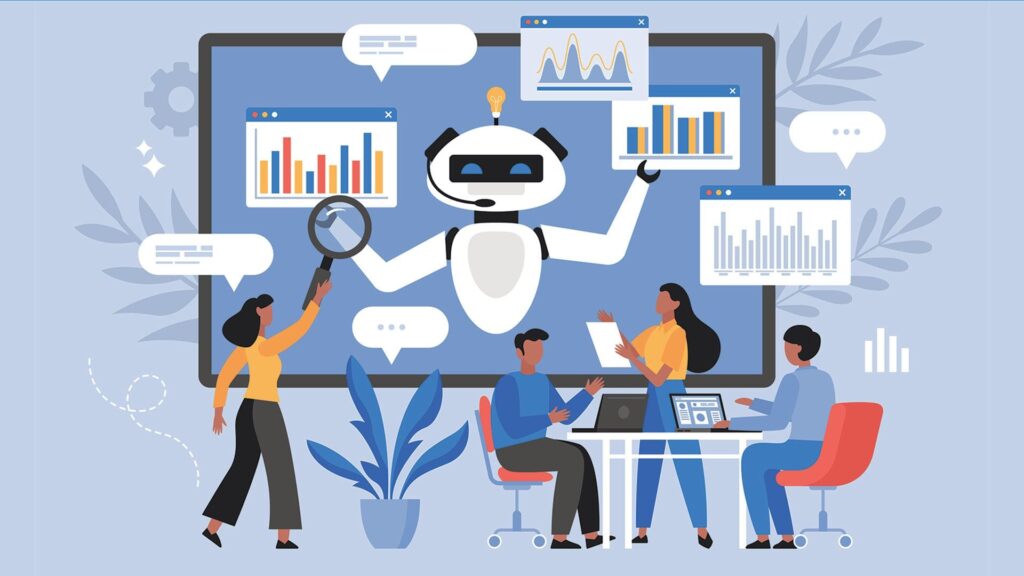
A recent global study by Jabra reveals a critical gap in how artificial intelligence (AI) is perceived and adopted in the workplace. While 84% of business leaders express strong trust in AI’s capabilities, only 26% of employees are actively using AI tools in their day-to-day roles. This disconnect raises urgent questions: If leadership is convinced of AI’s value, why are most employees still holding back?
The findings, drawn from a survey of 1,800 AI decision-makers across six countries and 4,200 employees from 14 countries, paint a complex picture of the current AI adoption curve – especially in markets like Malaysia where digital transformation is a national priority. Jabra has identified three key barriers that divide people and AI in the workplace.
A Generational and Organisational Divide
Jabra’s research points to a significant generational divide in attitudes toward AI. Millennials and Gen Z professionals are the most optimistic, with 47% and 37% respectively expressing positive sentiment toward AI in the workplace. In terms of practical AI use, 28% of Millennials and Gen Z professionals, while only 15% of Boomers do the same.
Surprisingly, AI decision-makers themselves skew younger, with 58% aged between 18 and 39, and a majority (71%) coming from non-IT departments. This suggests a shifting power dynamic – where innovation is being led by digital-native professionals outside of traditional tech silos.
Awareness Does Not Equal Adoption
According to the same Jabra study, despite high general awareness of AI – 91% of employees recognize terms like ChatGPT – actual usage of workplace-integrated tools remains low. Just 28% use ChatGPT in a professional setting, and only 17% are using business-specific AI solutions like Microsoft Copilot. Even more telling: less than 15% of employees find these tools genuinely beneficial to their work.
This highlights a major challenge for organisations. Employees may know these tools exist, but many lack the training, trust, or practical understanding needed to integrate AI into their workflows effectively.
Job Security Fears Still Cloud Adoption
Anxieties about job displacement continue to shape the conversation. About one-third of both decision-makers and knowledge workers fear that AI could replace their roles. In Malaysia, that concern is especially acute. According to a recent Ipsos survey, 73% of Malaysians worry AI will result in significant job losses – far above the global average of 65%.
Local leadership shares that concern. Malaysia’s Minister of Science, Technology and Innovation, Chang Lih Kang, has projected that over 30% of jobs in the country may be impacted by AI within the next decade. These concerns are reflected in the latest Jabra report across demographics: women, Baby Boomers, and employees in SMEs report higher levels of worry than men, younger generations, or those in larger corporations.
Closing the Gap: From Awareness to Action in Malaysia
To move from awareness to widespread adoption, Malaysian businesses need to take proactive, inclusive steps. This means more than just deploying AI tools – it means investing in:
- Role-specific training tailored to different skill levels and job functions
- A workplace culture that encourages experimentation and removes fear of failure
- Clear communication about the benefits of AI for daily operations and long-term career development
- Seamless integration of tools like Copilot and ChatGPT into core business platforms
Global tech leaders are already setting the tone. Microsoft, for example, has pledged a RM10 billion (US$2.2 billion) investment over the next four years to strengthen Malaysia’s AI and cloud infrastructure, including the creation of a national AI centre and, as part of Microsoft’s “AI for Malaysia’s Future” initiative, equip AI skills for 800,000 Malaysians by 2025.
AI’s potential to enhance productivity, creativity, and decision-making is not in question. But to unlock that value, leaders must bridge the trust gap with employees. That begins with clarity, education, and inclusion. As the Jabra study suggests, Malaysia’s AI future will be shaped not just by algorithms, but by how empowered its people feel to use them.
Read more and download the full report here: https://www.jabra.com/thought-leadership/ai-at-work









